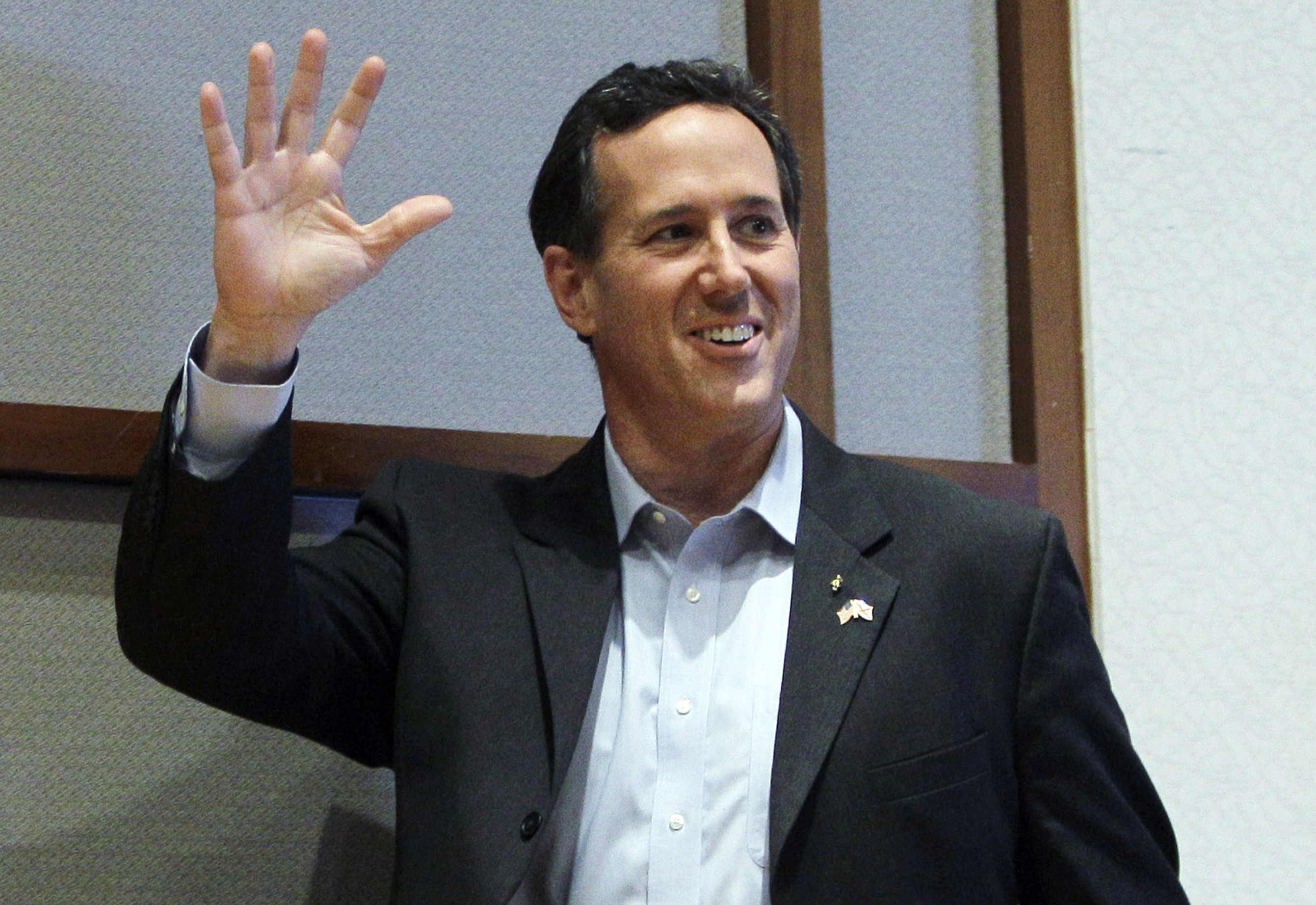Santorum gets big Alabama, Mississippi primary wins
Friday, January 1, 1904
Former Pennsylvania Sen. Rick Santorum demonstrated once again on Tuesday his strength with conservative voters, defeating former House Speaker Newt Gingrich and former Massachusetts Gov. Mitt Romney in primaries in Alabama and Mississippi.
Romney, the presumed Republican front-runner, limped to third-place finishes in both states, and Texas Congressman Ron Paul was a distant fourth.
Romney took some comfort in winning the Hawaii caucuses and the lone caucus in American Samoa -- though the latter was a hollow victory at most, with only 70 people attending the caucus, which was held in a bar.
Romney still leads in the delegate count, but the question now becomes whether Santorum can build momentum with his string of victories across the South, in addition to his earlier wins in Midwestern and Western states.
Romney had hoped to break through in the South with a win or at least a solid finish in Alabama or Mississippi. But it wasn't to be. In fact, the only Southern states he has won are Florida, which is not nearly as conservative as most other states in the South, and Virginia, where he benefited from the fact that Santorum and Gingrich were not on the ballot and the badly trailing Paul was his only opponent.
It is generally accepted that Southern states will opt for Romney over Barack Obama in the general election if he is the GOP candidate. But even that is not a sure bet. Obama defeated another moderate GOP candidate, Sen. John McCain, in 2008 in North Carolina, for instance.
It is hard to see how a Republican will beat Obama this year if he cannot fire up the conservative base, yet conservative voters are shying away from Romney in droves. That is in part because of his inability to articulate clear arguments against heavily disliked ObamaCare, which is very similar to the costly Massachusetts health care plan that Romney ushered into law.
What further underscores Romney's soft support is the fact that he cannot deliver a knockout blow to his opponents despite his massive campaign financing edge. He is able to buy plenty of advertising with which to attack Santorum and Gingrich, yet he just isn't gaining the traction one would expect for someone with such a money advantage.
So at this point, it is unclear whether Romney will get the majority of delegates he needs to clinch the nomination outright. If he doesn't, there likely will be a battle for the nomination at the August convention, and the conservatives who are currently divided between Santorum and Gingrich (though leaning more and more toward Santorum) may coalesce around one of them and bypass the moderate Romney.
While that is not the ideal path to the nomination for one of the conservatives, it would be perilous for Romney to be the nominee if he achieves that primarily because majority conservatives were split between two other candidates. That would strongly suggest that Romney lacks the grassroots Republican support he would need to defeat Obama.
